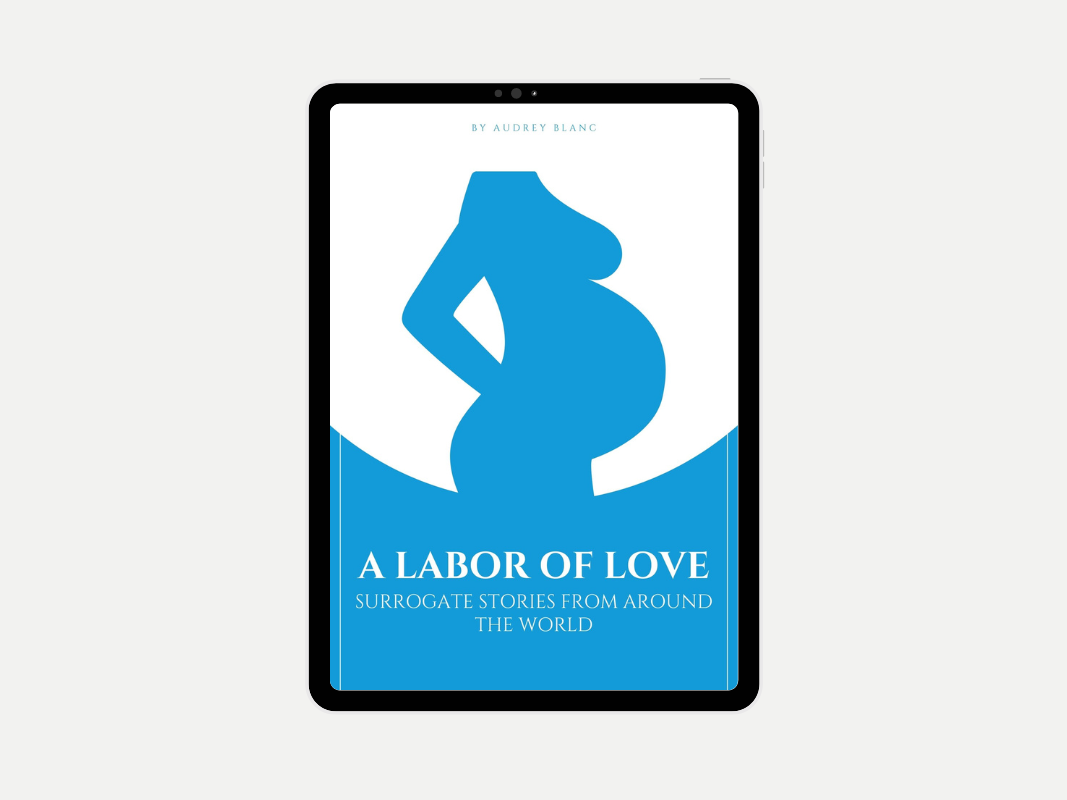9 Myths About Surrogacy For Intended Parents

It is critical that you understand these beliefs and their realities, regardless of whether you're considering carrying out your own surrogacy or just want to learn more. This will not only help you understand surrogacy better for yourself, but it will also provide you with the knowledge to dispel some of these myths whenever you come across them in conversation.
Here are some of the most widespread misconceptions regarding surrogacy that, regrettably, people still have:
1. Myth: A surrogate can change her mind and keep the child
This process is almost difficult to achieve in a gestational surrogacy. A surrogate has no parental rights to retain a child after birth because she is not genetically related to the child she is carrying. Additionally, while the surrogate is still pregnant, your surrogacy attorney and surrogacy specialist will make sure that the intended parents' rights are safeguarded. These parental rights are established by a pre- or post-birth parentage order, which also frequently enables the hospital to record the names of the intended parents on the birth certificate.
A surrogate rarely wishes to "keep" the child she is carrying, even with these legal protections. The surrogates that work with MyMedGlobal are finished having children and don't want any more. A surrogate does not feel the same emotional attachment to the infant of the intended parents as she had when she carried her own kid; rather, she views the unborn child as "babysitting" until they are delivered, at which point she is relieved to see the baby meet and go home with its parents. All surrogates receive emotional counseling during the process and are required to already have one kid, which is just one more technique to maintain a surrogate's emotional equilibrium.
2. Myth: Surrogacy is only for couples with fertility issues
Not just infertile couples can use surrogacy. For instance, Priyanka Chopra and Nick Jonas have openly acknowledged that they decided to hire a surrogate because their schedules did not align well enough for them to become pregnant naturally.
Lesbian couples who are unable to conceive or carry a pregnancy on their own, as well as homosexual males who wish to be biologically attached to their children, are both common candidates for surrogacy. In vitro fertilization (IVF), gestational carriers, and egg donors are most frequently used in LGBT surrogacy to obtain conception, and the surrogacy procedure is substantially the same as it would be for any other intended parent. However, before starting the procedure, same-sex couples must make certain crucial choices.
3. Myth: The surrogate is related to the baby
When people think of surrogacy, they frequently immediately conjure up images of conventional surrogacies in which the surrogate is genetically connected to the child she is carrying. Although traditional surrogacies are still an option, they are no longer frequently carried out due to the dangers associated with a genetic connection between the surrogate and the kid. The great majority of surrogacies, including those performed by American Surrogacy, are gestational, which means the surrogate is implanted with an embryo that was already developed and did not use her own eggs.
Similarly, despite the fact that many people are aware of in vitro fertilization, they can believe that a surrogate only becomes pregnant after having a sexual relationship with the intended father. Before the development of ART, this may have been the method used to produce covert surrogate pregnancies, but surrogacy specialists never use this method nowadays. As previously indicated, in vitro fertilization is a component of surrogacy, and an embryo is implanted into the surrogate under the guidance of medical professionals.
4. Myth: Surrogates are only interested in money
One myth that is common among surrogates is that they only want money. While some compensation is a necessary part of the process, it is not the main driver. Rather, surrogates enter surrogacy as a calling. They see money as an extra bonus to make their work more bearable.
Several myths are common, such as that surrogates are only interested in money and do not want to carry a child. Women who decide to become surrogates do have the choice of a compensated surrogacy, in which they would get a base payment for bearing the child (in addition to coverage of all pregnancy-related expenses). While surrogates do view this base pay as a means of achieving their financial goals, it's not the main factor in their decision to sign up as a surrogate. Instead, they are driven by a desire to see another family enjoy the joy that they understand parenthood can offer. While some of these ladies first learned about it later in life and "just felt" it was what they were supposed to do, others had dreamed of being surrogates since they were young.
All of our prospective surrogates undergo a thorough screening process that includes a look at their motivations.. Surrogates often see the experience of pregnancy as a gift and the gift of carrying a child is a powerful act of altruism and a legacy for the surrogate.
5. Myth: Surrogacy is unethical
Surrogacy is a highly regulated procedure that safeguards the rights and interests of all parties involved in addition to being an ethical one where both parties have the same goals. Both intended parents and surrogates are protected by several laws and regulations, and reputable surrogacy organizations that collaborate with MyMedGlobal ensure that their clients receive the best care possible during the process. Intentional parents pay surrogates well for carrying their children, and they wish to do this. It will be a wonderful experience for everyone as long as your surrogacy is carried out by an experienced surrogacy professional and attorney.
6. Myth: A surrogate baby won't bond to intended parents
One concern many intended parents have is whether a surrogate baby won't bond to them. The truth is that a surrogate baby will develop attachment to its surrogate during the pregnancy. This can be confusing for intended parents, and it is often difficult to navigate the situation immediately following delivery. To alleviate this problem, the intended parents should prepare for the emotional transfer before and after delivery.
The intended parents should spend time with their surrogate after the delivery. This way, they can see and hold the child. This helps the surrogate feel more comfortable and allows the baby to bond with both of them. For example, parents can record messages for the surrogate and play these messages on tiny speakers to the baby. Messages can include favorite books and songs. This regular exposure to the baby's voice will help the baby recognize the voice of the parent.
It is essential for the intended parents and surrogate to maintain a healthy emotional connection with the surrogate. Although there are no strict guidelines for post-birth interaction, some parents maintain regular contact with the surrogate and send photos or visit her. Others choose not to maintain a relationship with their surrogate.
Even when another woman is carrying the child, intended parents can form bonds with their child.
The person who cares for a child after delivery is more important when forming a link with them than who is carrying them. After the baby is delivered, many expectant parents easily bond with their baby.
7. Myth: You can't breast feed a surrogate baby
In a surrogacy arrangement, breastfeeding is not only possible but also strongly advised. By prescribing the right hormones and stimulating lactation, a fertility specialist can assist mothers who want to nurse their children. The same as any other mother, intended mothers can effectively breastfeed their child if they put in the time and effort to induce lactation.the process can be made easier by using medications that induce lactation. These medicines must be introduced in a timely fashion to help the baby produce milk. The medications are prescribed by a doctor. The woman may be given birth control pills, which produce hormones in her body that fool the body into thinking she is pregnant. The pregnancy hormones help the mother's body produce milk.
If the intended parents feel strongly about not breast feeding their surrogate baby, they should talk to a counsellor to discuss their feelings. Some surrogates will continue to express breast milk for a few months after giving birth, while others will stop. This decision may depend on whether the intended parents are close to the surrogate or not.
Breastfeeding a surrogate baby is not the same as breastfeeding a baby born from a pregnancy, but there are still many advantages. Breastfeeding provides the new-born with important nutrients and can help protect the baby from diseases.
8. Myth: Surrogacy is selfish, adopt instead
As previously noted, a lot of intended parents consider surrogacy as a last resort to have a child that is biologically related to them. Some of the embryos from earlier IVF treatments may still be in their possession, and they don't want them to be wasted.
The majority of people have an innate desire to have a child who is genetically linked to them, regardless of their infertility success or failure. That desire is entirely reasonable and understandable. Are the parents who are naturally able to produce biological children likewise selfish for choosing adoption instead? Of course not, and the intended parents who decide to use a surrogate are not either. Since not everyone is a good candidate for adoption, the choice of how to start a family must ultimately be made by the individual.
9. Myth: I can't afford surrogacy
Most intended parents cannot afford the full $150,000 fee for surrogacy, but there are now options that allow them to finance the procedure. Many will use a bank loan, home equity line of credit, or second mortgage to cover the costs. Others may borrow from family members or put the costs on their credit cards. However, these methods of financing are considered risky. You should consider all available options and set aside a portion of your monthly income toward the cost of surrogacy.
Many surrogacy agencies offer a range of services, including medical screening and legal assistance. You'll need to evaluate the fees of each agency based on the services it offers before choosing one. Some agencies provide more than others, so you should compare their services to determine which one fits your needs and budget.
The costs for surrogacy vary widely. The average cost is around $110,000 in the United States. This price is often the biggest concern for middle class families, but there are various ways to reduce costs. Many surrogacy agencies have financial resources to help families obtain financing. There are also grant funds for surrogacy, loans, and fundraising opportunities.
How to Finance Your IVF & Surrogacy Abroad
Where to start
Before embarking on your surrogacy journey it is essential to have an abundance of support. If you or someone you know is considering fertility treatments, IVF, or surrogacy abroad, contact MyMedGlobal, the leading agency in Medical Tourism since 2014. This free service will help you match with a clinic abroad that specifically meets your needs, can provide free quotes, facilitate the transfer of medical records, arrange travel accommodation and more. MyMedGlobal boasts a database of over 1,500+ qualified and vetted doctors and surgeons abroad. Match with a Clinic, Find Financing Options, or Get a No-Obligation Quote today.
We can offer you with information regarding a high-quality reliable fertility clinic. Throughout the duration of your surrogacy journey, your MyMedGlobal Patient Manager will be a constant source of assistance.
Deciding if surrogacy is right for you is the beginning of a long process. You can find more resources to help you below:
3 Top LGBT Friendly Countries for Surrogacy
Different Types of Surrogacy Explained
How Does Surrogacy Work? Your Essential Guide
How Long Has Surrogacy Been Around? The History of Surrogacy
How Much Does Surrogacy Cost? Comparison by Country
How to Finance Your IVF & Surrogacy Abroad
How to Match with the Best Surrogate for Your Family
Surrogacy - Answers To Frequently Asked Questions
Surrogacy In Colombia - Frequently Asked Questions
Surrogacy in Mexico - Your Step by Step Guide
The Cheapest Countries for Surrogacy
Why Surrogacy in Colombia is Booming for all Couples, LGBTQ+ included









Stay on top of your global medical news by signing up for our facts-first newsletter
Join our mailing list!
Success, you have now signed up for MyMedGlobal's newsletter.
Please try again later











